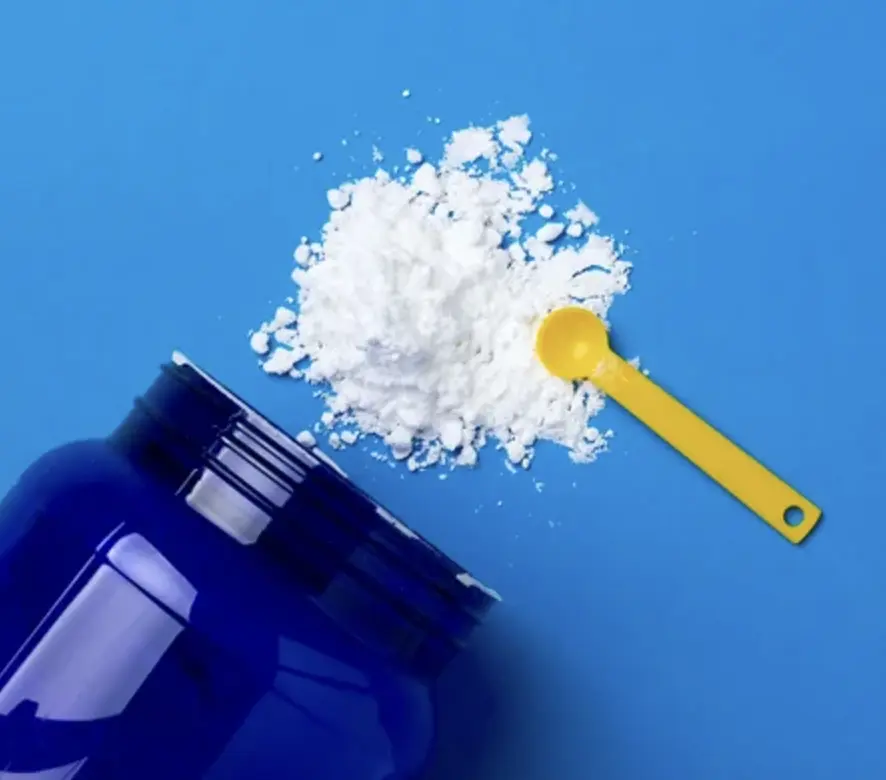Published by Dr. James Harrison, MD | Mind | Last update: Dec 16 • 1258
6 min
First of all, what is creatine.
Creatine is a naturally occurring compound in the body, primarily stored in muscles, that plays a crucial role in energy production. It is derived from amino acids and helps produce adenosine triphosphate (ATP), the molecule that provides energy for cellular activities. While creatine is well-known for its benefits in improving athletic performance, recent research suggests that it may also have a positive impact on brain health.
Creatine is found in protein-rich foods like meat, fish, and dairy, but it is also available as a dietary supplement in powder or capsule form. While athletes often use it to build muscle and boost strength, its potential to support cognitive function and brain health is gaining attention.
Editorial Review

Contents
How Does Creatine Affect the Brain?
The brain, much like muscles, requires significant amounts of energy to perform tasks like thinking, learning, and memory recall. This energy comes from ATP, the production of which creatine supports. By increasing phosphocreatine levels in the brain, creatine ensures a steady supply of energy for brain cells, particularly during mentally demanding tasks.
Research indicates that creatine supplementation may improve cognitive performance, particularly in individuals with low creatine stores, such as vegetarians and older adults. For example, studies show that creatine can enhance short-term memory, problem-solving skills, and overall mental clarity.
The Benefits of Creatine for Brain Health
Improves Memory and Cognitive Function
Creatine has been shown to enhance memory and intelligence in some individuals. In studies, vegetarians who supplemented with creatine experienced up to a 50% improvement in memory tasks. Older adults have also reported better recall and mental sharpness after using creatine supplements.
Boosts Mental Energy
By replenishing ATP stores in the brain, creatine helps reduce mental fatigue, especially during periods of stress or sleep deprivation. This can improve focus and productivity in both work and study settings.
Supports Brain Health in Neurological Conditions
Creatine’s ability to increase energy production has sparked interest in its potential to help manage neurological disorders. Research suggests that creatine may:
- Improve strength and daily function in individuals with Parkinson’s disease.
- Reduce fatigue and improve recovery in cases of traumatic brain injury (TBI).
- Slow disease progression in conditions like Huntington’s disease and amyotrophic lateral sclerosis (ALS), though more research is needed.
May Protect Against Age-Related Decline
As we age, brain function and muscle mass naturally decline. Creatine supplementation, combined with exercise, has been shown to support cognitive health and reduce the effects of aging on the brain.
Is Creatine Safe for Brain Health?
Creatine is generally considered safe for healthy individuals when taken in recommended doses (3–5 grams per day). It has been extensively studied for over 200 years, and no significant adverse effects have been reported in healthy populations. However, individuals with pre-existing kidney, liver, or metabolic conditions should consult their healthcare provider before starting creatine supplementation.
Limitations and What We Still Need to Learn
While creatine shows promise for brain health, most studies have focused on specific groups, such as vegetarians, older adults, or individuals with neurological conditions. More research is needed to understand its effects on younger, healthy individuals and its long-term impact on cognitive health.
Conclusion: A Potential Brain Booster
Creatine is more than just a muscle-building supplement—it’s a compound with promising benefits for brain health. By enhancing energy production, creatine supports memory, focus, and mental clarity while potentially offering protection against some neurological disorders. Though more studies are needed to fully understand its cognitive benefits, creatine is a natural and accessible option for those looking to support both physical and mental performance.
How we reviewed this article:
Grand Health Insider follows strict sourcing standards, relying on peer-reviewed research, respected academic institutions, and reputable medical journals and associations. We are committed to using reliable, high-quality sources to ensure the accuracy and integrity of our content. Learn more about how we maintain content accuracy and stay current by reviewing our editorial policy.
- Rae, C., et al. (2003). “Oral creatine monohydrate supplementation improves brain performance: A double–blind, placebo-controlled, cross-over trial.” Proceedings of the Royal Society B.
- Avgerinos, K. I., et al. (2018). “Creatine supplementation and cognitive function: A systematic review.” Experimental Gerontology.
- Chilibeck, P. D., et al. (2017). “Creatine supplementation in older adults: A meta-analysis.” The Open Aging Journal.
- McMorris, T., et al. (2007). “Creatine supplementation and cognitive performance in elderly individuals.” Neuropsychology, Development, and Cognition.
- Allen, P. J. (2012). “Creatine metabolism and psychiatric disorders: Therapeutic value?” Neuroscience & Biobehavioral Reviews.

